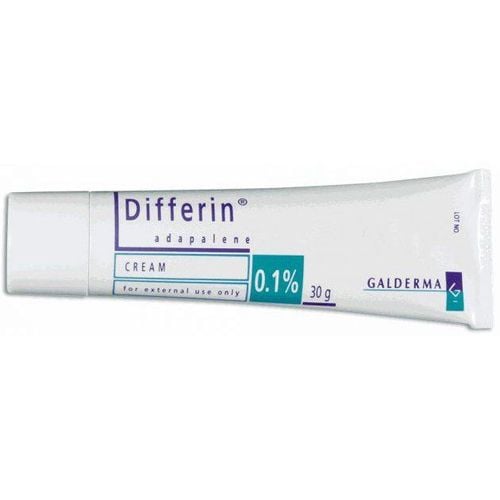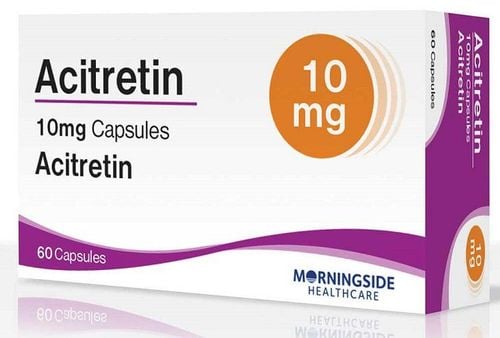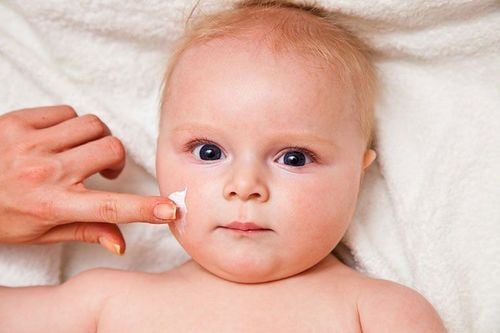This is an automatically translated article.
The article was advised by Specialist Doctor I Le Thi Thu Hang - Dermatologist - Department of Medical Examination & Internal Medicine - Vinmec Hai Phong International General HospitalPsoriasis is a common skin disease. Although not dangerous, if not treated early and properly, the disease will affect quality of life and cause serious complications.
1. Is psoriasis dangerous?
In normal people, there is always the process of old skin cells dying, shedding and being replaced by new skin cells. In people with psoriasis, this process happens 10 times faster, causing old and new skin cells to accumulate to form thick, scaly patches of white. Psoriasis affects people of all ages, and can start at a young age or after the age of 50. The disease has many manifestations, many levels affect the patient's daily life.Trắc nghiệm: Bận rộn có ảnh hưởng đến sức khỏe của bạn không?
Cuộc sống hiện đại khiến chúng ta vì quá bận rộn mà quên chăm sóc sức khỏe cho chính mình. Ai cũng biết rằng lịch trình làm việc cả ngày có thể khiến bạn kiệt sức, nhưng cụ thể bận rộn ảnh hưởng thế nào tới sức khỏe? Hãy cùng làm thử bài trắc nghiệm dưới đây.
2. How does psoriasis manifest?
In the skin, psoriasis often manifests as red patches of white, thick, scaly skin consisting of many layers that are stacked very easily, resembling candle drops. The most common sites are the elbows, knees, hairline, sacrum, buttocks. Especially after a while, the lesions can spread to the whole body.
Usually people with psoriasis do not itch, except in some cases patients can itch, sting, and burn.
Nail lesions in psoriasis have manifestations as opaque yellow nails, with pitted spots on the surface. In more severe cases, there are cases of thick, fragile nails that are easy to break and even lose nails.
In joints, the most common manifestations are chronic arthritis, joint deformity, stiffness, joint dislocation, patients have difficulty walking... Some patients have very little skin damage, but they show it in the joints. very heavy, especially the knee and spine joints.
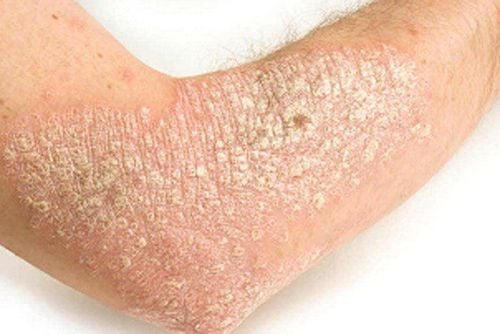
3. Causes of Psoriasis
Currently, the exact cause of psoriasis is unknown. Some studies suggest that psoriasis is hereditary. In addition, there are some ideas that psoriasis is related to genes and immune disorders in the patient's body, which leads to skin cells proliferating faster than normal. Environmental factors have also been implicated in the initiation, promotion, and exacerbation of psoriasis.
Trauma: Psoriasis can appear in traumatized skin, even minor scratches. Infection: commonly seen in upper respiratory tract infections such as pharyngitis, tonsillitis. This can cause illness as well as make it worse. Use of certain antihypertensive, antimalarial, or nonsteroidal anti-inflammatory drugs may also trigger or worsen psoriasis stress), always in a state of sadness, anxiety, anger Weather factors are also factors that can cause psoriasis outbreaks, especially cold and dry weather. Alcohol, tobacco...also can aggravate psoriasis. In particular, patients taking drugs containing corticosteroids, herbal medicines of unknown origin, unknown ingredients and not yet evaluated for effectiveness can cause complications into pustular psoriasis or extremely red skin. heavy.
4. Can psoriasis be treated?
Because psoriasis is a chronic, progressive, persistent disease, so patients need to have a good understanding of the disease as well as current treatment methods, what to do and what to avoid in order to help themselves. live peacefully and minimize the complications of the disease.
The purpose of disease treatment is to reduce symptoms, help the patient relieve itching, reduce redness, so that the patient can have a normal life.
Patients need to see a dermatologist to diagnose the disease, as well as choose appropriate treatment to avoid complications.
5. How to prevent psoriasis?
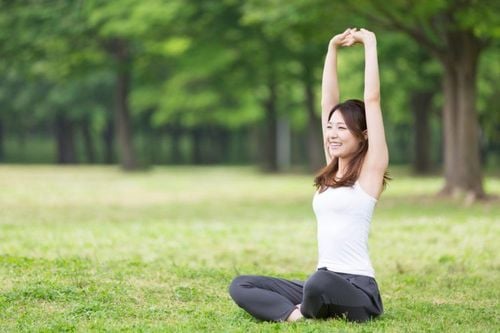
To prevent psoriasis people need:
Avoid nervous tension, live in moderation, limit stimulants (alcohol, tobacco...). Regular eating and drinking activities. Daily need to clean the body, take a clean bath to help remove the skin scales. Hot water and harsh soaps should not be used, as these can increase symptoms. For people with psoriasis, it is necessary to be careful with allergens such as foods containing a lot of protein and fishy such as shrimp, crabs, crabs, bamboo shoots, etc. Drinks with stimulants: alcohol, beer, tobacco, etc. ... In addition, people with psoriasis need to limit their exposure to soaps, detergents... chemicals such as hair dyes... Besides, foods containing beneficial fatty acids such as Omega - 3 and vegetables rich in vitamin B12, minerals such as zinc... are also ways to help the body avoid diseases including psoriasis.





